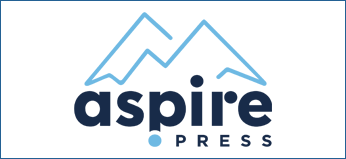Websites are supposed to help improve your business and bottom line. Unfortunately, too many small business owners typically make these 7 mistakes while developing their websites.
7. Being Stuck on Tools and Languages
Technology is constantly changing and web tools are constantly evolving.
Web developers typically choose a set of niche skills along with complimentary technologies for most of their careers. For instance, I specifically develop with WordPress, PHP, MYSQL, JQuery, Javascript, HTML and CSS.
I create vector graphics with Adobe Illustrator. I develop with jEdit. Another developer may chose to develop with a completely separate set of skills yet be just as competent as I am creating a website.
The real difference is not what set of technologies one may use but the experience, creative, analytical, business thinker behind all these tools and technologies who can come up with the best solutions for your overall project.
What to Do Instead:
Review a web developer’s portfolio to decide if this person not only has the technical skills to develop your website but the thinking, creative skills to provide specific solutions to business goals. Their portfolio should demonstrate the thinking process behind each project and not just a set of pretty pictures. They should be able to consult you, address your questions and not make you feel like you are being pushed on one solution versus another.
6. Failing to Have a Budget Range in Mind
You should always have a budget in mind before starting a project.
Not only are web developers at different levels when it comes to skill and knowledge but your budget range tells us what talent quality you are looking to hire.
Budget too low and highly skilled individuals won’t even bother with your project. Budget too high and you could be overpaying.
Pinpointing a specific range sends the message you are serious about the project. Don’t worry about nailing down a specific number. That can be negotiated later.
What to Do Instead:
Decide how much you are willing to spend. You don’t have to let the developer know the exact number (after all, this is your leverage) but at least specify a range.
5. Lacking a Well Thought Out Plan
You cannot build a house without blue prints. Well, technically you can but I doubt you will want to live in it.
Don’t build a website without a plan.
It is a web developer’s job to consult on the how of the project and come up with a specific plan to successfully complete the project.
However, if you don’t know why the business needs a website or understand who your customers are then it is much harder to produce something that really works for your business.
What to Do Instead:
Draft a plan. Before you reach out and hire someone you should have general knowledge about:
- how a website will improve your business
- who your customer base is
- why your customer base will use your website
- what budget range you are working with
- a general idea of what content will be going on the website
- a general idea of what features your site will need
- how your competitors are using their websites
4. Assuming the Web Developer or Web Company Does Not Accept Payment Plans
Most projects require a 50% deposit and 50% remainder after the project is complete. However, it never hurts to ask if payment plans are acceptable.
Some developers, especially if they have worked with you in the past, are more than happy to set up an alternative payment structure.
What to Do Instead:
Decide what works best for you and simply ask. The worst they can say is no.
3. Failing to Understand the Difference Between Freelancers, Employees and Big Development Companies
Freelance web developers have a few advantages over development firms most people do not consider. For instance: my overhead is not as high as a firm and therefore I am able to charge less.
When I was a freelancer I could be more personal and available to my client. There are things a firm can do that I couldn’t; such as be a one-stop-shop or effectively handle large scale development. Plus their advertising budget was way higher than mine.
Keep in mind that a freelancer is not your employee. It’s not acceptable to assume they are available to you 24/7 or that multiple non-project related consultations or chit chat phone calls per week for free is okay.
Freelancers have a much harder time finding work versus a firm and typically handle multiple clients at once therefore their time is limited.
What to Do Instead:
Decide what your needs are and always ask when updates will be provided. Ask about their emergency policies and hours of operation for tech support.
2. Not Understanding the Difference Between Building a Brand Versus Building a Website
Anyone can build a website and they can build it for free. There are many solutions out there.
But not everyone has the time or the desire to brand a business much less do it online.
You wouldn’t build a home the same way you build an Apple store. They exist for different purposes.
One is built for family, friends and neighbors. The other is built for business. There are different regulations, licenses and methods for building a business retail store and just the same for a home.
It takes knowledge to build the difference just like it takes special knowledge to build a website tailored for your business that speaks directly to your customers and prospects.
Make sure your website is saying the right words.
What to Do Instead:
If you don’t know what makes a website successful for your business either you must gain the knowledge or hire someone who has experience. Building a website off “best guess” usually isn’t good enough.
1.Setting It and Forgetting It
A website neglected long enough becomes irrelevant, stale and demoted from search engines.
Feeding your site regurgitated content using RSS feeds won’t count and isn’t enough. Allowing content to become years, even months old makes your site irrelevant and search engines slowly ignore you.
You have to update your site on a regular basis providing fresh, unique content that interests your targeted customer base.
What to Do Instead:
Create a content schedule. If you lack the time for unique content you can always hire someone via websites like TextBroker.com. Secondly, come up with a SEO plan that specifies goals, analyzes traffic and allows you to reassess and revise your plan each month.

















